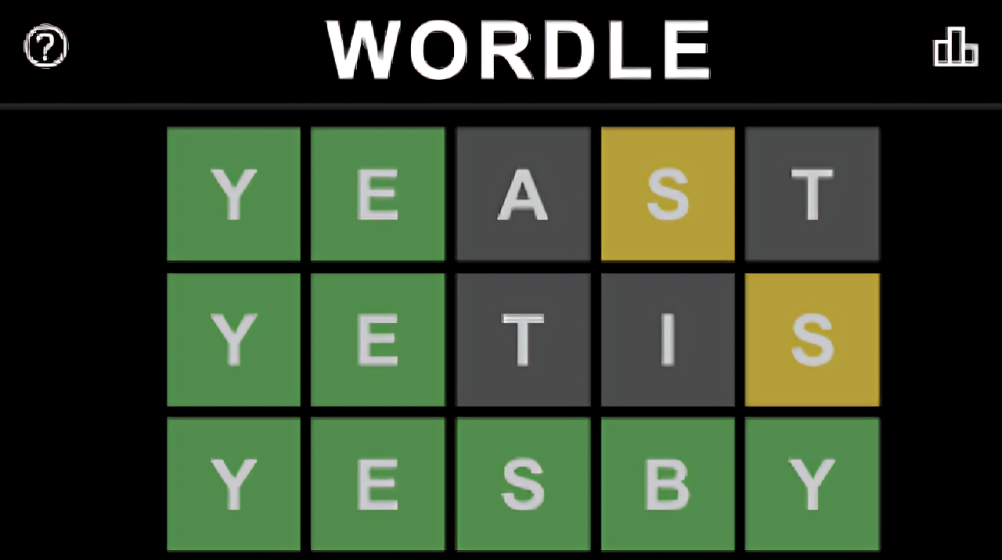In recent years, Wordle has captivated millions around the globe with its deceptively simple yet intellectually stimulating gameplay. Developed by Jonathan Feinberg, this word puzzle game has quickly become a cultural phenomenon, spawning a variety of spin-offs and inspiring countless imitators. This article delves into the origins, mechanics, impact, and variations of Wordle, providing a thorough overview of its significance in the world of online games and puzzles.
The Origins of Wordle

Wordle’s journey began in 2008 when Jonathan Feinberg, a software engineer and programmer, created the game as a tool to visualize word frequency in texts. The original Wordle was not a game but a web-based application that allowed users to generate word clouds from text they provided. These word clouds represented word frequency, with the size of each word correlating to its frequency in the input text.
The concept of Wordle as a game emerged in October 2021 when Josh Wardle, a software engineer, introduced his version of Wordle to the public. Inspired by his love for word games and puzzles, Wardle designed Wordle as a daily puzzle game where players guess a five-letter word within six attempts. His version became an overnight sensation, thanks to its straightforward rules, minimalistic design, and the social sharing aspect that encouraged players to share their results online.
How Wordle Works
The basic mechanics of Wordle are simple:
- Objective: Guess a hidden five-letter word within six attempts.
- Gameplay: Each guess provides feedback on the guessed word. Letters that are in the correct position are highlighted in green, letters that are in the word but in the wrong position are marked yellow, and letters not in the word at all are shown in gray.
- Strategy: Use the feedback to refine guesses and deduce the hidden word. Efficient guessing involves using common letters and letter combinations while avoiding incorrect guesses.
The simplicity of Wordle’s rules contrasts with the depth of strategy required. Players must think critically about word patterns, letter frequencies, and possible combinations. This balance between simplicity and complexity is one of the key factors behind Wordle’s widespread appeal.
The Impact of Wordle
Wordle’s impact extends beyond its gameplay. Its rise to fame has been fueled by several factors:
- Social Media: Wordle’s integration with social media platforms has been a significant factor in its success. Players often share their results on platforms like Twitter, showcasing their puzzle-solving prowess and encouraging friends to play. The use of emojis and colored boxes to represent results creates a visual and engaging way to share progress.
- Daily Puzzle Format: The daily puzzle format adds a sense of exclusivity and anticipation. With only one puzzle available each day, players are motivated to return daily, fostering a routine and increasing engagement.
- Cultural Phenomenon: Wordle has transcended the gaming community to become a cultural touchstone. It has inspired a variety of spin-offs, adaptations, and parodies, and has been referenced in popular media and conversations. Its influence extends into educational settings as well, where it is used as a tool to enhance vocabulary and spelling skills.
Variations and Spin-offs
Wordle’s success has led to the creation of numerous variations and spin-offs, each offering a unique twist on the original concept:
- Quordle: An extension of Wordle that presents players with four puzzles simultaneously. Players must solve each puzzle using a single set of guesses, increasing the complexity and challenge.
- Octordle: A more challenging variation where players solve eight puzzles at once. This variant is suited for experienced players seeking a more demanding experience.
- Wordle Unlimited: This version removes the daily limit, allowing players to solve an infinite number of puzzles. It caters to those who want to play more frequently and without constraints.
- Dordle: Players solve two puzzles simultaneously with a shared set of guesses. This version adds an extra layer of strategy as players must balance between two different words.
- Absurdle: A more complex variant that adapts to the player’s guesses, making it harder to deduce the word. It is designed to be more challenging and less predictable than the original Wordle.
Educational Applications of Wordle
Beyond entertainment, Wordle has found its way into educational settings. Teachers and educators use Wordle to enhance vocabulary skills, spelling, and critical thinking. Its engaging format helps students practice language skills in a fun and interactive manner. Some educational adaptations include:
- Vocabulary Building: Wordle challenges students to think about word structure, common letter patterns, and spelling. It helps expand their vocabulary and understanding of word formation.
- Spelling Practice: By playing Wordle, students can improve their spelling skills as they learn to identify correct letter placements and common spelling patterns.
- Critical Thinking: Wordle encourages players to use deductive reasoning and strategic thinking to solve puzzles. These skills are transferable to other areas of learning and problem-solving.
The Future of Wordle
As with many viral phenomena, the future of Wordle remains uncertain. Its continued popularity will likely depend on its ability to evolve and adapt to changing trends and player interests. Possible directions for the future include:
- Increased Integration with Technology: Future versions of Wordle may incorporate advanced technologies such as artificial intelligence and machine learning to create more dynamic and personalized gameplay experiences.
- Expansion into New Formats: Wordle could expand into different formats and platforms, including mobile apps, educational software, and virtual reality experiences.
- Community Involvement: The Wordle community has played a significant role in its success. Continued community involvement and feedback will likely shape the future of the game, with new features and variations driven by player preferences.
FAQs
1. What is Wordle?
Wordle is a daily word puzzle game where players guess a hidden five-letter word within six attempts. Each guess provides feedback on the guessed word, helping players refine their guesses and deduce the hidden word.
2. Who created Wordle?
Jonathan Feinberg created the original Wordle in 2008 to visualize word frequency as a web tool. The version that became a game was introduced by Josh Wardle in October 2021.
3. How do you play Wordle?
Players guess a five-letter word. Feedback is given for each guess: correct letters in the right position are highlighted in green, correct letters in the wrong position are highlighted in yellow, and incorrect letters are shown in gray.
4. What makes Wordle so popular?
Wordle’s popularity stems from its simple rules, the strategic depth required to solve the puzzles, and its integration with social media. The daily puzzle format also creates a sense of anticipation and routine.
5. Are there any variations of Wordle?
Yes, there are several variations and spin-offs, including:
- Quordle: Four puzzles simultaneously.
- Octordle: Eight puzzles simultaneously.
- Wordle Unlimited: Infinite puzzles without daily limits.
- Dordle: Two puzzles with a shared set of guesses.
- Absurdle: A more complex and adaptive variant.
Conclusion
Wordle has established itself as a modern classic in the realm of word games and puzzles. Its combination of simplicity, strategic depth, and social connectivity has made it a global sensation. From its origins as a word cloud generator to its current status as a cultural phenomenon, Wordle’s journey reflects its unique appeal and impact on the gaming world.
As we look to the future, Wordle’s continued evolution will likely keep it at the forefront of word-based entertainment. Whether through new variations, educational applications, or technological advancements, Wordle’s influence is sure to endure, offering players new challenges and opportunities to engage with language in exciting ways.



